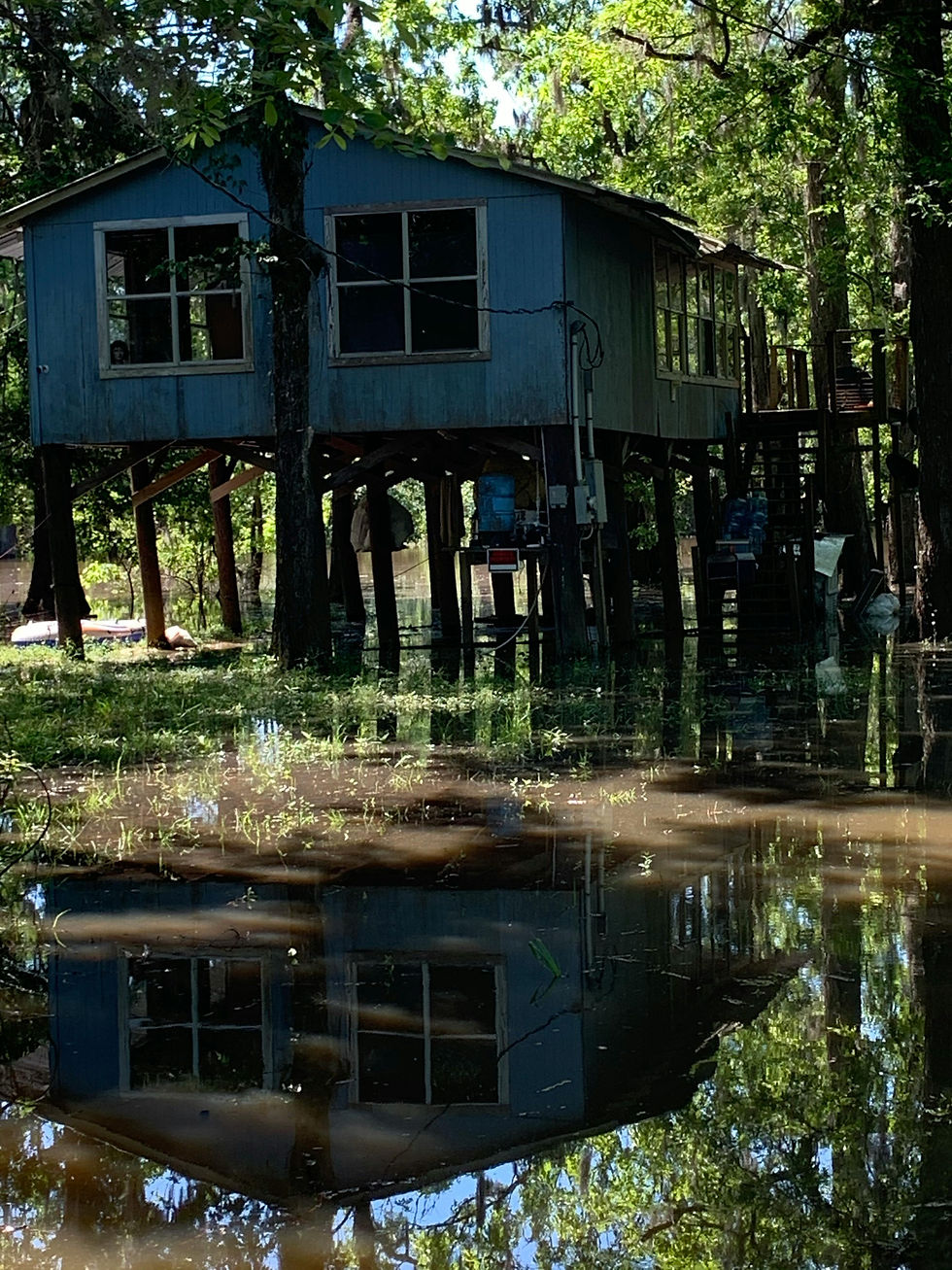Indigenous communities in Brazil
- Jan 2, 2023
- 2 min read
Interview: Kaime Silvestre

By Alessandra Bonanomi
Despite their negligible ecological footprint, Indigenous people are often the first to face the direct consequences of climate change because of their close connection to and dependence upon the environment. Indigenous communities have historically taken care of and protected land and know how to live in balance with nature. In an interview with Kaime Silvestre, a climate activist and a human rights lawyer from the Amazon region in Brazil, we learned that the biggest issue faced by the Indigenous people of Brazil is losing access to the land. The Brazilian government and farmers are expelling Indigenous people through the use of different tactics, including intimidation.
According to Kaime, the indigenous community is especially vulnerable because they do not receive proper assistance from the government. The National Indian Foundation ( FUNAI) is a government body that is responsible for creating and implementing policies relating to indigenous peoples. However, the previous government did not provide FUNAI with the assistance it needs to be able to do its work properly. A stark example of this was the COVID-19 response. Indigenous communities did not receive the medical assistance they needed and people died as a result of this negligence. Kaime implores us, “We need to protect Indigenous people and their lands, not only in Brazil but globally.”
Kaime believes that the interest in the Amazon rainforest is rooted in the belief that it will improve Brazil's economy. He disagrees and argues that this economic growth is temporary. It gives a quick profit to a few, but it is not a long-term solution. He points to livestock agriculture as the reason behind the Amazon deforestation.
According to Kaime, last year, the level of deforestation in the Brazil Amazon was the highest it has been in the past ten years. He is quick to emphasize, though, that the entire ecosystem is crucial for the protection of the environment, the global climate balance, and the whole planet. For these reasons, he finds it crucial to raise awareness about deforestation. He believes that one possible solution to the problem is to vote for and elect people that care about the planet.
As someone who attended the 2022 World Economic Forum Annual Meeting in Davos, Switzerland, Kaime’s message to world leaders is to take action because he believes “we’re running out of time.” He also thinks that the private sector can play an instrumental role in guiding the government in the right direction.
Lastly, Kaime contrasts Brazil, his home country, with Switzerland, his country of residence when it comes to climate-friendly practices. He has made a few observations. Firstly, Swiss people are committed to tackling climate change. All parts of society are engaged in discussions and debates about climate change. He does note that Switzerland’s relatively small size might make this easier to do. Brazil, on the other hand,is much bigger and some communities are harder to access. Kaime also makes a poignant remark that Brazilian people are so concerned with getting food on the table that thinking about climate change becomes a futile exercise.




Comments